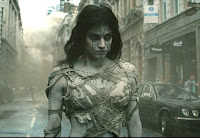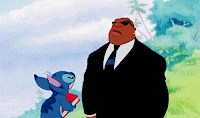Well, here we are in 2021. A serious sci-fi year. 2021! It feels like it should be in a cool chrome font, doesn’t it? We should all be heading to work in flying cars, jetpacks, or giant robots. And instead we’re dealing with a pandemic. Oh, and an attempt to overthrow the government of the US by a bunch of domestic terrorists inspired by an unstable President.
But other than that… Happy 2021!
Anyway… hey there! I was thinking about my usual start-of-the-year post and trying to think of something new I could bring to it. I’ve talked in years past about how I started doing this and what I’m trying to do here. I thought maybe this year I’d talk about you and what you might get out of this. And what you won’t get.
This collection of scribbled essays is probably 83% writing advice. Straight writing and storytelling. Not publishing, marketing, networking, or any of that. Those are all other things, and being clear about that—really understanding it—is a big step in becoming a better writer. I do talk about them here sometimes (thus, the above links) but they’re the minority topic by far. Maybe 15-16% If that’s the kind of thing you’re really interested in, there are a lot of better places to get it, and more regularly than I’ll talk about it.
That last one or two percent? Cartoons. A tiny bit of politics. Maybe con schedules, back in the clean days when we all went to cons.
But let’s talk about that writing advice. I think there’s a bunch of conditionals that should get applied to any advice someone gives. Or gets. Seriously.
That’s pretty much conditional number one. If you’ve been following me for a while, that’s my Golden Rule here—what works for me probably won’t work for you, and it definitely won’t work for him. I’m not saying my advice—or anyone else’s—is necessarily bad. But the simple truth is we’re all different writers with different projects at different points in our career, and trying to make advice a one-size-fits-all thing just isn’t going to work.
I’ve mentioned before that a big part of maturing and growing as a writer is figuring out what works for you. Because that’s all that matters. What makes it easier for you to write, and what helps you write better. I don’t care if the advice is from Stephen King, N. K. Jemisin, Cormac McCarthy, Margaret Atwood, Ta-Nehisi Coates, or whatever author you consider your writing idol. It doesn’t matter that it works for them—if the advice doesn’t work for you, you shouldn’t be following it.
Which brings me to conditional number two. There’s a difference between advice and rules, and—much as some folks hate to hear it—there are rules to writing. Yes, there are. Spelling is a real thing. So’s grammar. And structure. These are real, quantifiable things I can get wrong.
However… this is art. You’re an artist (don’t say wordsmith don’t say wordsmith don’t say wordsmith). And that means we get to bend and break rules when we need to. Again—key thing—when we need to. Not on a whim. Not because we don’t know the rules to start with. Not to show those gatekeepers they’re not the boss of me! There’s got to be a reason for rule-breaking, and there still need to be enough rules in play that other people can understand me.
And this brings me to my third and probably final conditional for advice. Unless I think of a fourth one while I’m writing this out. Third is that I need to be aware most advice is intended for people at different points in their writing development. If I get asked the same question by a pro, by someone just breaking in, and by somebody just starting out, there’s a chance I’m going to give a notably different answer to each of them. And it could be really harmful if someone’s following the wrong advice.
Okay, that feels a bit clumsy so let me try it this way.
I’ve talked about cooking as an analogy for writing a couple times, and I’ve compared the ranty blog to a sort of cooking school. But it struck me a while back that even that’s a little off, because I can take a beginner cooking class at my local community college or I can take a course at Le Cordon Bleu in
Y’see, Timmy, there’s absolutely nothing wrong with what they teach at Le Cordon Bleu. It’s one of the world’s greatest culinary institutes and the instructors have a lot to teach. That said, a huge amount of what they teach is assuming I know a lot of basics, and probably a few advanced techniques as well. Again, world famous institute.
If I can’t tell the difference between sifted flour and corn starch, I can waste a lot of time and money at Le Cordon Bleu. Good chance I’d develop a bunch of bad habits, too, as I try to absorb and implement lessons I don’t have the foundation to fully understand. Heck, I could even come out of there a worse cook than I went in, trying to spatchcock a lobster thermidor or something like that.
This collection of rants is kind of a cooking school, but it’s maybe a second or third level community college class. I’m expecting everyone can tell salt and sugar apart, that you know how to softboil an egg, and you understand the difference between baking and broiling. And, maybe most importantly, that you actually want to learn more. I mean, that’s the whole point of taking a higher-level class, right? You don’t take it to argue with the instructor or tell all the other students how you don’t need to be there.
Well, okay, there’s probably some people who take classes for those reasons…
But you get my point. The advice I’m offering is for people who’ve written a few short stories, maybe a few chapters, maybe even a first novel. You’re already a few rungs up the ladder and I’d like to help you go a few more. But if you’ve had a book or two published, maybe a good string of short stories… you’re already near the top of that ladder. There’s not much I can do for you that you probably couldn’t do quicker and easier on your own.
So that’s what I’m serving here. Advice and tips and maybe pointing out a few rules. If any of that sounds good to you… stick around. And if there’s something in particular you want to hear me blather on about, just let me know down at the bottom. I feel all warm and special when people leave comments.
Next time, to start us off, I’d like to talk about success.
Until then, go write.


















